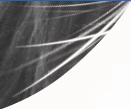THE MOST DANGEROUS WORDS IN COACHING
“You can spit in his right ear and use that as an aid for canter,” a former coach of mine, Robert Hall, used to say, when emphasising how extremely adaptable and easy to train a horse is if you use any aid consistently. In a demonstration I will often emphasise this point by doing something silly, like pulling the hairs behind the saddle, as I give the normal aids for canter. I do this about ten times, then take the leg away completely and just pull the hairs and most horses will still canter.
A FUNDAMENTAL WEAKNESS
However this is the root of a fundamental weakness with equestrian coaching that is not the case in other sports. We work consistently with our horses, get a result and EUREKA we have an answer that we use again and teach others. “I’m a practical horseman,” we often hear from the coach, “if it works that’s what is important. Everything I teach I have done myself.” However these are some of the most dangerous words in equestrian coaching. It is not enough to just find techniques that work….we have to ask if there is a better way, a way that will allow more efficient progress, and a way that will work for all levels and disciplines. To provide answers to these questions coaches need to really study their subject and ‘stand on the shoulders of giants’ who have already gone down this pathway.
Nuno Oliveira, whose philosophy was the reason for such a heart-warming response to my last blog, was considered somewhat of a maverick in the dressage world, but unlike so many trainers who are on the ego trip of their ‘unique’ method, he truly studied dressage training and was as familiar with Steinbrecht, Lorke, and the German School as he was with French Master trainers. I would suggest that a Dressage trainer today also needs to have studied jumping, and that any trainer of young riders needs to study all the major disciplines.
THERE’S AN OLYMPIAN IN YOUR CLASS
A coach has a huge responsibility to deliver sound and sensible advice, that works not only at a lower level but also at a higher level, if there is any possibility of their lower level student one day aiming for Olympic heights…and who can say in equestrian sports who is NOT going to possibly reach the highest level, and in what discipline.
In most sports the road to elite performance is tightly controlled by age and maximal development from a young age – by your thirties you become a veteran - but in equestrian sports extraordinary heights are possible even in your sixties. This is not only true of Dressage. In show jumping, for example, Canada’s Ian Millar, Brazil’s Nelson Pessoa and Ireland’s Eddie Macken have all competed successfully at the highest level at this age in recent times, and in horse trials Bruce Davidson from the USA, and New Zealanders Mark Todd and Andrew Nicholson all continue to defy the aging process at the highest level.
GOOD COACHING MAKES A DIFFERENCE
New legs for old is a prime benefit of equestrian sports, applicable not just at elite level but also to all the tens of thousands of older riders who ride happily at lower levels, and who fulfil their potential and gain huge satisfaction because of good coaching…and a few of these riders will (not may) ride at International level if they have the right horse. Sadly there are probably even more riders who never do this because of initial training that that was inappropriate for higher level riding or a different discipline.
Three of the most common horrors are (1) unbalanced riding trot positions which both stop a horse coming between the aids and prevent an easy progression to jumping, (2) complicated aid systems which do not work for the higher levels or for efficient communication, and (3) and a mechanical approach which may lead to quicker initial progress but also quickly leads to a dead end – a full stop.
As Steinbrecht said "...all [training exercises] follow one another in such a way that the preceding exercise always constitutes a secure basis for the next one. Violations of this rule will always exert payment later on; not only by a triple loss of time but very frequently by resistances, which for a long time if not forever interfere with the relationship between horse and rider."
BEWARE GIFTS OF SAND
So beware those bearing gifts of gold when their education and experience is limited to one discipline and does not include exposure to high level work and exposure to greatness, otherwise their gold may prove to be sand. This is why Master trainers and coaches with both depth and breath of training are so important, why mentoring schemes are so fruitful, and why a good idea must give way to a better idea.
Now I am well aware this is all ‘a big ask’ and a huge challenge for coaches, but it is also a huge opportunity that is just waiting to be grasped and turned into contented riders and horses. Happy days. William
[ back to Articles ]
|


